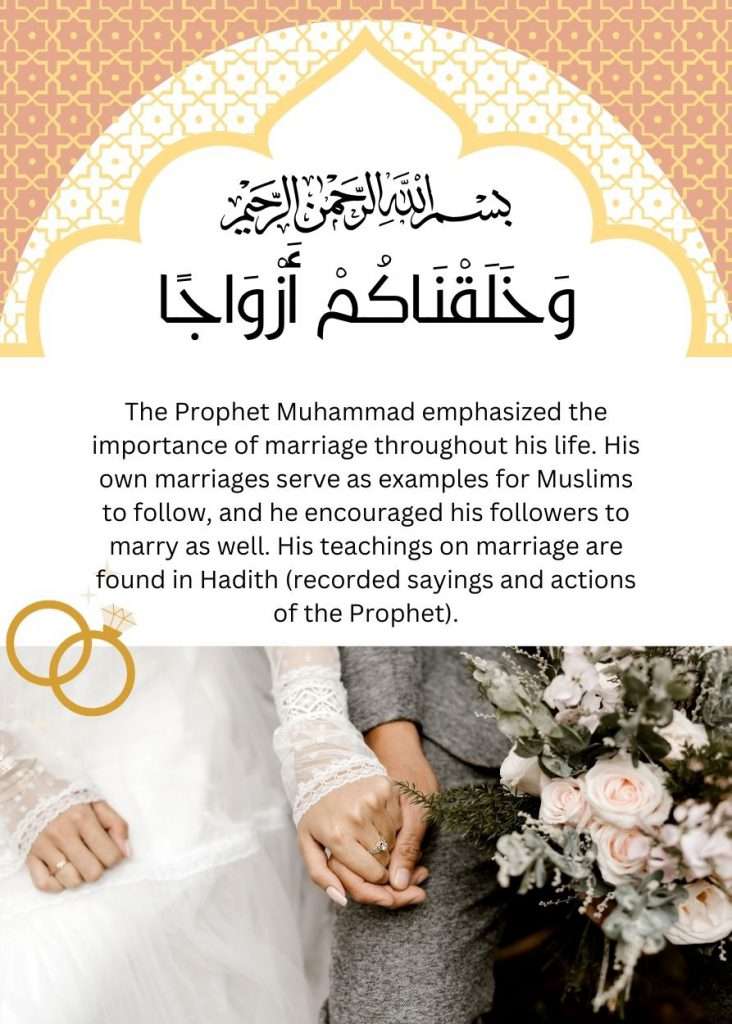
Nikah, also known as marriage in Islam, is considered a Sunnah (a practice or tradition of the Prophet Muhammad) and is highly encouraged in Islamic teachings. It is one of the most significant acts in a Muslim’s life, and there are several reasons why it is considered a Sunnah:
Following the Prophet’s Example: The Prophet Muhammad emphasized the importance of marriage throughout his life. His own marriages serve as examples for Muslims to follow, and he encouraged his followers to marry as well. His teachings on marriage are found in Hadith (recorded sayings and actions of the Prophet).
Fulfilling Half of One’s Faith: In Islam, marriage is often described as completing half of a person’s faith. This highlights the significance of marriage as a means of fulfilling religious duties and leading a balanced life.
Preservation of Morality: Nikah is seen as a way to maintain chastity and morality within society. It provides a legitimate and halal (permissible) means for individuals to satisfy their natural desires while adhering to Islamic guidelines.
Formation of Families: Marriage is the foundation upon which Muslim families are built. It is through marriage that children are born and raised in an Islamic environment, where they can learn about their faith and values.
Mutual Support: Marriage is seen as a source of mutual support and companionship for spouses. In Islam, husbands and wives are expected to support and care for each other emotionally, physically, and spiritually.
Legal and Social Rights: Marriage provides legal and social rights to both spouses, including inheritance, financial security, and protection. It establishes a formal contract that outlines the responsibilities and rights of each partner.
Prophet’s Guidance: The Prophet Muhammad provided specific guidance on choosing a spouse wisely, treating one’s spouse with kindness, and maintaining a loving and respectful relationship within marriage. These teachings are considered crucial for a successful and harmonious marriage.
It’s important to note that while Nikah is highly encouraged, it is not obligatory in Islam. Some individuals may choose not to marry for various reasons, and that choice is respected within Islamic principles. However, for those who do choose to marry, following the Sunnah and Islamic guidelines for marriage is considered a virtuous and rewarding act in the eyes of Allah.


